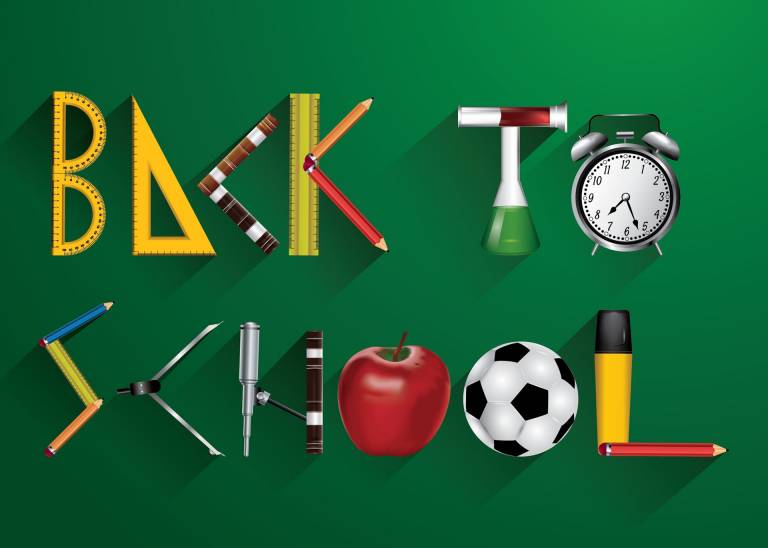Though July is now a long distant memory, by this month you may well have been aware of one or more of the following: too many glasses of wine in the evenings to unwind have left you worried about the units of alcohol you’ve consumed over the academic year, the poor sleep patterns that have left you feeling like a work zombie and over-reliance on the convenience of pre-prepared meals, take outs and chocolate bars from the school vending machine that have slowly and incrementally added pounds to your waistline from September, not to mention the sheer exhaustion as you crawled towards the summer break.
As an ex-teacher who suffered severe burnout ten years ago with chronic fatigue, which after a period of absence from school led me to greater self-care by incorporating Yoga and Mindfulness into my daily routine, I fully understand how poor mental and physical health due to workload is one of the main issues in education with stress being the single biggest reason for days taken off by teachers.
I am not denying that the responsibility of workload and stress rests with the DFE and school management team; however, the start of the new academic year, whether you are a NQT or seasoned teacher, is your time to set good intentions to mitigate against teacher burnout by putting your health first. Here are a few suggestions – many are fairly commonsense, and some do take some effort to implement, but try to do what works best for you.
Have a proper break or take a Mindful moment in your teaching day. Headspace do a great Mindfulness smartphone app. Get outside if you can. I have a teacher friend who insists that going for a brief walk or sitting on a bench in a park a short drive from his school to eat lunch does him wonders. If you can do Mindful walking or eating, even better. Stuck in class at midday? Do a few minutes Desk Yoga from YouTube to relieve tension from your shoulders, neck, back and wrists.
Prioritise. Plan the year, month, week and day ahead. Find a free year wall planner online to help you balance your work and life. Fill in fun packed days, holidays abroad and vacations first but make sure you are able to look forward to scheduled opportunities of enjoyment not just outside of the school term.
Sleep – have a good bedtime routine. Detox from devices that keep you connected and alert in the evenings. Establish a rule that you will never do emails or work after a certain time and never an hour before bed. What you eat and drink can also affect your sleep – alcohol may make you tired but you may find that you will get a broken night’s rest. Eating late or drinking caffeine is no good either. Take time to unwind – a hot bath with soothing lavender, a drink of chamomile tea, and some gentle Restorative Yoga (see YouTube) such as Legs up the Wall, Supine Bound Angle, and Child’s pose finishing with a guided Meditation, Yoga Nidra or Body Scan played from YouTube will set you up for a restful evening.
Learn to say ‘No’ more often at work. Create boundaries – stop volunteering to do more than your share of the work. Have work free days at home. Pick a day to only do your contracted hours and leave work at school to indulge in some scheduled me-time. If you can, don’t take work home at all. Perhaps you may find that arriving very early to work, before many people arrive, can be one of your most productive times to plan lessons or to assess a class of work (if you stagger your marking with good planning so it doesn’t come in all at once, even better).
Ditch the perfectionism. Step back and get a perspective on your career and life. Realize that despite everything you try to do in class, you will not be able to reach everyone, in the same way in life some people will like you and others won’t. You cannot always compensate for the lives of your pupils outside of your lesson, but if you are compassionate, students will trust you enough to enjoy being taught by you. Being caring gets better outcomes rather than pushing your own anxiety on them to achieve. This is easier said than done when management are insistent on excellent results but inside your classroom you control the space. Make it a calming and happy one by incorporating Mindful moments. Studies have shown that Mindfulness increases resilience and improves attention, concentration, and pupil behavior, as well as social and emotional learning.
Resource teaching ideas and innovate. Beg, borrow and adapt the tons of resources that are out there to save on teaching time, such as Starter and Plenary PowerPoints on TES resources. The best place for CPD is by following other teachers and education providers on Twitter, such as @teachertoolkit with his 5MinuteLessonPlan and the amazing ‘one-stop’ shop of curated teaching ideas by the wonderful @ASTSupportaali. Have a marking code or mark sheet you can highlight/tick and attach to students’ work. Ask yourself, is there a different way to assess students without getting them to do it written, for example, a Poundland Pedagogy Assault Course where students create competitive games to test each other? Never allow yourself to be bored or stale by what you teach. Innovate and experiment to keep your enthusiasm fresh. Variety is after all about differentiation. But don’t simply take on some new buzz way of teaching just because a management CPD session suggested it – do what works for you and your students but don’t beat yourself up if an exciting idea or lesson goes wrong. The best teachers know they make mistakes and accept they have bad days. Tomorrow is always another day and pupils are also more forgiving than you think.
Use your time more effectively in class – facilitate learning rather than lead it. Delegate teaching and learning to the students, as in Envoy Groups or the Chocolate Bar activity. But also remember, as a teacher you don’t always have the energy to devise exciting all singing and dancing lessons – have study time in class when students get on silently with set tasks. Sometimes this is the best time to have one-to-ones, progress reviews or feedback on work rather than having to mark it. It also gives you the time to build relationships with your students to get the best out of them.
Recognise that work does not define you – placing all your energy into one box that is your career is the road towards teacher burnout, negativity and disappointment if you don’t get the results or the promotion that you aimed for. Have a life outside of your job – a hobby, exercise routine, and spend time with your family. A palliative nurse placed her observations in a blog on the top regrets of the dying. The most significant regret was prioritizing work over children, partners and friends.
Re-wire you brain with gratitude and Mindfulness to avoid the self-defeating critic. The best item I recently bought was a Life Journal from Amazon. It allows me to plan my time effectively but also to set positive intentions and goals linked to self-improvement. For each week there’s space to reflect on what I am grateful for, what I’ve achieved and what I’m good at. Studies have shown that recognizing gratitude, celebrating achievements and acknowledging what we like about ourselves decreases negative emotions, intensifies enthusiasm and reinforces productivity. If you can, engage in ‘Loving Kindness’ meditations by Jon Kabat Zinn (author of Full Catastrophe Living and with some Meditations on YouTube). Mark Williams, author of Finding Peace in a Frantic World also has great Meditations which allow you to connect with the present moment – try to spend more time being rather than doing!
Realize you alone are responsible and in charge of your own joy. Happiness is, after all, an inside job. If you don’t like your situation, try to negotiate, modify or change it. If all else fails, and you find you are not in a place that has a collegiate atmosphere of sharing resources to lessen the burden of teaching or you find management unsympathetic, find another school, or rethink your career plan. Can you go part-time, step down from heavy responsibilities, and even consider whether you think teaching is ultimately for you? When you have come to the point of exhaustion, can’t cope or want to reconsider your career, talk to someone. A good management team member or a trusted colleague should provide a good shoulder to lean on and the teacher’s helpline by Education Support (08000 562 561) and your Union are also available for confidential help.
Tristessa Moore is an ex-teacher and Educational Coach who has worked with the PGCE department at the University of Huddersfield. She is also a trainee Yoga Therapist in physical and mental health, a Yoga and Mindfulness Tutor in schools and colleges, and a Mindfulness Educator working for the international charity, Mind with Heart. She is a registered Sports Coach with Hull City Council and a plenary speaker for MHFA (Mental Health First Aid), and MHFA for Youth across England.





